The YBMen Project is now being offered in middle schools!
Beliefs about mental health could substantially influence Black boys’ understanding of mental health as well as their motivation to seek mental health support when needed. Studies have reported that boys, in general, are more likely to report negative views and hold more stigmatized ideas of mental health (compared to girls), which is associated with poorer help-seeking behaviors (Chandra and Minkovitz 2006). This becomes even more complicated for Black boys as they are navigating gendered ideas of mental health, racially socialized ideas of mental health, as well as how properly to address mental health needs. Despite growing research dedicated to investigating the mental health of Black boys, few directly examine experiences with their perceptions and understanding of mental health conditions such as depression.
What We Are Doing
This study uses data from a social media-based intervention for Black males, the Young Black Men, Masculinities, and Mental Health project. In a focus group with 8th-grade Black boys, facilitators asked open-ended questions about perceptions of mental health and depression, views of manhood, and experiences with social support. We piloted various iterations of the YBMen Project with 13-15-year-old Black boys in middle schools in the Metro Detroit area. Given the social media preferences of boys in this age group, we are using Instagram as the YBMen intervention platform. Additionally, we are using age-appropriate, gender-specific, and culturally-sensitive popular cultural references to disseminate information on mental health, gender identity, racial identity, and social support to Black boys.
Findings
Findings revealed this group of Black boys – while well versed in many of the causes, symptoms, and treatments for mental health challenges and depression – preferred to address mental health needs on their own and through informal familial support. It also revealed the boys wrestled with the complex ways in which their racial identity would affect their experiences with mental health. The findings speak to the importance of mental health education for Black boys and the need for further research incorporating Black boys’ voices in their perceptions, experiences, and understandings of mental health. Finally, the study connects Black boys’ perspectives with many of the perspectives of their racially diverse peers.
A detailed report from some of our work with Black boys in middle school can be found here.




